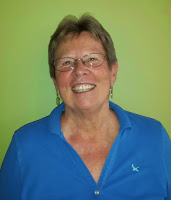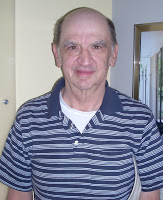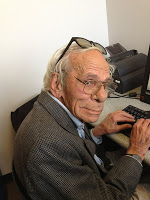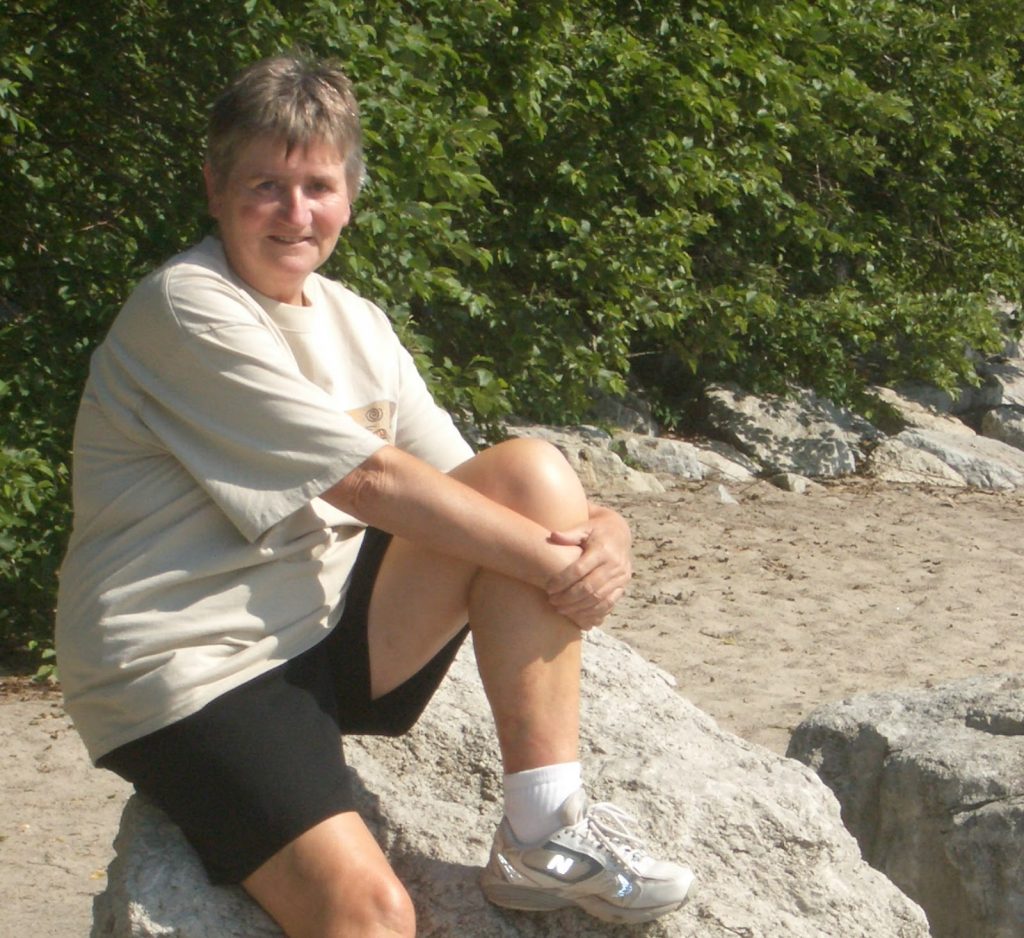difficult topic for me to write about because it reaches into the deepest
places of pain within my psyche. There have been many times in my life when I
have felt extremely isolated, lacking a connection to anyone. I was the little
child in kindergarten who chose to work on jigsaw puzzles during chose time
because it was the only activity which involved no interaction with others, all
the time hearing the other kids laughing and playing and wanting to be with
them. In college, when on a camping trip with a class, I laid awake all night
feeling totally isolated with others all around me, I felt like I was losing my
mind. It was one of the longest nights in my life. The terror I was feeling was
due to the fact I felt isolated, but I was too afraid to admit it. In both
instances, and others like them, if I had only been able to reach out and say
help me, I would have been okay. But I had learned to lock my fears away, I
knew they were not to be hung out like dirty laundry. I came from a very stoic
German family which mistakenly didn’t ask for help, even when it was needed.
There was instead a false sense of pride in handling, or appearing to handle,
all life’s trauma’s by ourselves. The reality was we all needed help,
especially when Karl died at the age of two. Of course back in the fifties this
type of help was not advocated or available. My dad’s yelling at my mom not to
cry on the way to Karl’s funeral was not because he was a heartless bastard, it
was because he was such a sensitive man, who loved this little child so much
and his wife and his other children and he couldn’t deal with his own pain,
much less take on and help the rest of us deal with ours, which he felt was his
responsibility because he was the man of the house. These feelings never left
him, they choked him until the day he died. When he was in hospice, a few weeks
after my mother had unexpectedly died, he lamented to me he felt so guilty and
helpless because he wasn’t there for her when she passed away. He was referring
to the evening of the night when she died in her sleep. She had collapsed in
the bathroom and he didn’t have the physical strength to help her up so he had
to call the neighbors to help him get her up and to bed. He didn’t realize he
had been there for her; he had nearly died the day after Christmas, just a
month before, but after a week stay in the hospital he unexpectedly made it
home. She had told all of us that she was not going to let my dad die first,
she couldn’t handle the death of another person she loved so much. She prayed
nightly, and I think quit taking her heart meds, for this to be the case. She
died precisely as she prayed for, in her own bed, in her own home, next to her
husband. My dad was there for her, by making the call for help to the
neighbors, he provided the means to her prayers.
old child that I began to surmise that when in pain you don’t cry and you don’t
ask for help. This was solidified further by my mother’s inability to provide
emotional support to me or my brother due to her own debilitating grief. This
was the point in my life when I began to experience a lack of connection with
others. This was triggered once again when I was in college and became aware of
my homosexuality. I instinctively knew, as did my girlfriend, not to reveal our
relationship to anyone else. And in the hiding of who I was I was once again
isolated from society, I could sense the darkness beginning to overtake me but
I didn’t want to ask for help and I doubted there was any to be found. After
all I had learned in my psychology class that homosexuality was a mental
illness and I couldn’t face the label of being mentally ill. This was further
exacerbated by the fact my grandmother had been in the state mental hospital in
Pueblo and no one in the family understood why. None of us ever knew the
diagnoses – but I did know from my visits to the hospital with my mom that I
didn’t want to be sent there. It was very frightening to me as a child to
realize my grandmother was locked up. So to avoid a similar fate, I ironically
locked myself up, tighter and tighter. The longer I stayed in the closet the
more I felt disconnected from mainstream society.
feeling of disconnect I am unable to feel, it is as though I am locked away
from everything, including myself. It is sometimes difficult to access the key
which frees me from my emotional shackles and allows me to deal with the
feelings which I am blocking. I have learned through years of therapy that I
need to let myself feel the underlying feelings, which are either sadness or
fear. It has taken me years to learn this and also to learn these negative
feelings are not permanent and that it is normal to experience them. I know this and most of the time I can do it,
but I wish I could do it all the time and more quickly.
life presents us with lots of self-fulfilling moments, that is to say if I go
into a situation expecting it to be enjoyable and thinking people will like me
and want to connect with me, they do. And likewise if I anticipate the opposite
I generally leave thinking I had been right, I was going to have an unenjoyable
time, I wasn’t going to connect with others, and I didn’t. It’s that old bit of
seeing a group of people laughing and looking at you. You might think, “They’re
all looking at me and think I look fat in my outfit”, or you might think “They
look like a fun group of people who like to laugh, I think I’ll join them.”
past twelve years, minus a few months here and there, and Monday afternoons for
the past two and a half years, have been an immensely important source of
connection for me. I know when I walk into the Golden Recreation Center on Sundays
and the Center on Monday afternoons I will feel connected with whomever I
encounter there, be it a woman with a basketball or a fellow storyteller with a
story. Feeling a sense of connection and the inherent sense of acceptance by my
friends is what makes life worth living.
the Author
Upon completion of high school, I attended Colorado State University majoring
in Physical Education. My first teaching job was at a high school in Madison,
Wisconsin. After three years of teaching I moved to North Carolina to attend
graduate school at UNC-Greensboro. After obtaining my MSPE I coached
basketball, volleyball, and softball at the college level starting with Wake
Forest University and moving on to Springfield College, Brown University, and
Colorado School of Mines.
through artificial insemination. Due to the time away from home required by
coaching, I resigned from this position and got my elementary education
certification. I taught in the gifted/talented program in Jefferson County
Schools for ten years. As a retiree, I enjoy helping take care of my
granddaughter, playing senior basketball, writing/listening to stories in the
storytelling group, gardening, reading, and attending OLOC and other GLBT
organizations.
playing senior basketball, writing/listening to stories in the storytelling
group, gardening, reading, and attending OLOC and other GLBT organizations.









